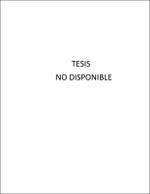| dc.contributor.advisor | Burgos Fernandez, Maria Celeste | |
| dc.contributor.author | Chavez Castillo, Prisccila Lacid | |
| dc.creator | Chavez Castillo, Prisccila Lacid | |
| dc.date.accessioned | 2017-10-23T20:54:43Z | |
| dc.date.available | 2017-10-23T20:54:43Z | |
| dc.date.issued | 2017 | |
| dc.identifier.uri | https://hdl.handle.net/20.500.12759/3172 | |
| dc.description.abstract | El presente trabajo de investigación es un estudio descriptivo correlacional, cuyo
objetivo fue determinar la relación existente entre Personalidad y Autoconcepto físico
en estudiantes universitarios.
La población participante la integran 378 estudiantes universitarios de una universidad
de la ciudad de Trujillo quienes fluctúan en edades de 18 a 30 años; para la
recopilación de la información se utilizó instrumentos psicométricos: El Cuestionario
de personalidad Eysenck (EPQ) y el Cuestionario de Autoconcepto Físico (CAF).
A partir de los datos obtenidos, se afirma que en este grupo de estudiantes
universitarios existe correlación significativa entre Personalidad y Autoconcepto
Físico. Así también se muestra la presencia de una correlación directa, de grado débil
y altamente significativa entre la escala Introversión-Extroversión con las escalas
Habilidad Física, Atractivo Físico, Fuerza, Autoconcepto físico general y
Autoconcepto general y una correlación directa, de grado débil y significativa con la
escala Condición física del Autoconcepto físico en estudiantes de una universidad
privada de Trujillo. De igual manera existe la presencia de una correlación inversa, de
grado débil y altamente significativa entre la escala Estabilidad - Inestabilidad con las
escalas Habilidad Física, Condición física y Fuerza y una correlación directa, de grado
débil y significativa con las escalas Atractivo físico y Autoconcepto físico general del
Autoconcepto físico en estudiantes de una universidad privada de Trujillo.
Encontrándose además una correlación no significativa con la escala Autoconcepto
general en la muestra investigada. | es_PE |
| dc.description.abstract | A correlational study between family social climate and resilience in high school
students of a state educational institution in Trujillo has been carried out. A sample of
176 students, male and female, aged 15 to 17 years old, from the 4th and 5th grades
of a state educational institution in the city of Trujillo, using the Social Climate Scale
Family (FES) and the Resilience Scale for Adolescents (ERA)
The results show that, in terms of the Family Social Climate, an average level prevails
in the students evaluated, in general and in its dimensions, with percentages of
students that register this level ranging from 36.9% to 40.3%; And an average level of
Resilience in general and in its dimensions, with percentages ranging between 36.9%
and 43.8%.
Regarding the relational analysis, a very significant correlation, positive and in average
degree, was found between Family Social Climate and Resilience in the study subjects.
On the other hand, there is a significant significant positive and average correlation
between Relationships and Insigth dimensions, Interaction, Morality, Humor and
Creativity; And significant, negative and medium degree, with the dimensions
Independence and Initiative. There was also a very significant correlation, positive and
average, between Development and the dimensions Insigth, Interaction, Morality,
Initiative and Creativity; And a significant correlation, positive and average, between
Development and the Independence and Humor dimensions. In addition, a very
significant correlation, positive and in average degree, was found between Stability
and Insigth dimensions, Interaction and Morality. | en_US |
| dc.description.uri | Tesis | es_PE |
| dc.format | application/pdf | es_PE |
| dc.language.iso | spa | es_PE |
| dc.publisher | Universidad Privada Antenor Orrego - UPAO | es_PE |
| dc.relation.ispartofseries | T_PSICO_090 | |
| dc.rights | info:eu-repo/semantics/closedAccess | es_PE |
| dc.source | Universidad Privada Antenor Orrego | es_PE |
| dc.source | Repositorio Institucional - UPAO | es_PE |
| dc.subject | Personalidad | es_PE |
| dc.subject | Autoconcepto físico | es_PE |
| dc.title | Relación entre personalidad y autoconcepto físico en estudiantes universitarios | es_PE |
| dc.type | info:eu-repo/semantics/bachelorThesis | es_PE |
| thesis.degree.level | Título Profesional | es_PE |
| thesis.degree.grantor | Universidad Privada Antenor Orrego. Facultad de Medicina Humana | es_PE |
| thesis.degree.name | Psicólogo | es_PE |
| thesis.degree.discipline | Psicología | es_PE |

